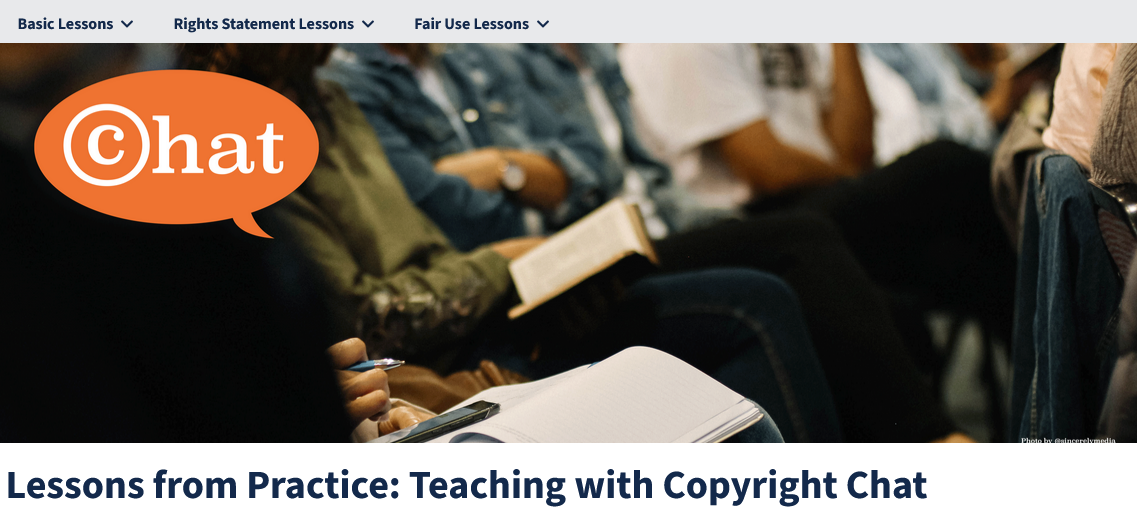This is the latest post in a series announcing resources created for the Scholarly Communication Notebook, or SCN. The SCN is a hub of open teaching and learning content on scholcomm topics that is both a complement to an open book-level introduction to scholarly communication librarianship and a disciplinary and course community for inclusively sharing models and practices. IMLS funded the SCN in 2019, permitting us to pay creators for their labor while building a solid initial collection. These works are the result of one of three calls for proposals (our first CFP was issued in fall 2020; the second in late spring ‘21, and the third in late fall 2021).
Today we’re excited to share “Power, Profit, and Privilege: Problematizing Scholarly Publishing” (available in the SCN OER Commons Hub and via Pressbooks). This work was created by Amanda Makula from the University of San Diego. Folks in scholcomm land may be familiar with Amanda’s great work as the principle planner of the Digital Initiatives Symposium. We’re thrilled with what she’s created here, as scholarly publishing can definitely use some problematizing. Here’s Amanda to introduce Power, Profit, and Privilege:
The scholarly communications system – and open access in particular – has always been interesting and exciting to me. There are so many intricacies and possibilities for innovation that the conversation is endless, and always evolving. But though I find it fascinating, I’ve noticed that non-library faculty and students are generally less enthusiastic. Rather, understanding and navigating it seems to be just one more hurdle for them to get around to reach their goal of publication in a top-tier journal.
After years spent having these conversations, and feeling frustrated that open access wasn’t necessarily intrinsically interesting or valuable to the academic community, I realized that the only way to truly engage my audience was to contextualize the scholarly publishing system within their culture of academia. Open access and scholarly publishing reform didn’t necessarily matter to them if it was isolated from their lived reality of trying to secure an academic position or achieve tenure and promotion.
Scholarly publishing and academia are bound together, and tightly. One does not exist separate from the other, and one cannot change without redefining the other. If we as librarians want to transform scholarly communications, as we say that we do, we must work internally, from within academia, to make it happen. This means doing things like agitating for the reform of rank and tenure, problematizing journal rankings, desanctifying peer review, and working not only to pass OA policies on our campuses but also to connect them to other existing academic policies and practices.
This is a tall order, and academia is notoriously slow to change. Those of us who have lived in it for a while can have difficulty seeing that it is a construct, not a natural order. Those who are new to it, who are students themselves or who are contemplating pursuing an advanced degree, are more likely to question why it operates as it does – and whether there might be better ways to build, consume, and share knowledge in the future.
I designed Power, Profit, and Privilege: Problematizing Scholarly Publishing with this audience in mind. To revolutionize scholarly communications, we need to start with the next generation of academics. Scholarly communications should have a place in the curriculum; it should be taught so that students who are interested in publishing their scholarship, who are interested in matriculating to graduate school, will have a foundational understanding of the system and what it means to participate in it. I think too often it’s assumed that students will pick up this information on their own or from faculty advisors as they go through a program. But even if that’s the case, it’s unlikely that they will question the system or recognize its complicated challenges. And we absolutely need them as allies to make inroads on reform.
My curriculum is organized into two main parts, each with several chapters. The Fundamentals aims to acquaint students with the basic framework of contemporary scholarly publishing. (Some) Problems raises issues that complicate scholarly publishing, specifically how it intersects with power, money, prestige, and privilege. Chapters include hands-on exercises, readings, and additional resources. The course culminates in two final written assignments that instructors can use as part of the curriculum, or that independent learners can work through on their own.
I hope that you and/or your students will find something provocative, perplexing, and pragmatic within the pages of Power, Profit, and Privilege. Like scholarly publishing itself, this work is evolving and benefits from your feedback. Get in touch with me at amakula[at]sandiego[dot]edu if you have questions, comments, or ideas. In the meantime: happy reading!
About the Author
Amanda Y. Makula worked as a Research & Instruction Librarian for 12 years before moving into her current role as Digital Initiatives Librarian at the University of San Diego, where she manages the institutional repository, engages the campus community on scholarly communication topics, serves as liaison to the Ethnic Studies department, and oversees the annual Digital Initiatives Symposium. Her most recent research project appeared in the March 2022 issue of College & Research Libraries. In her spare time you’ll find her listening to podcasts in Spanish or riding her e-bike.

